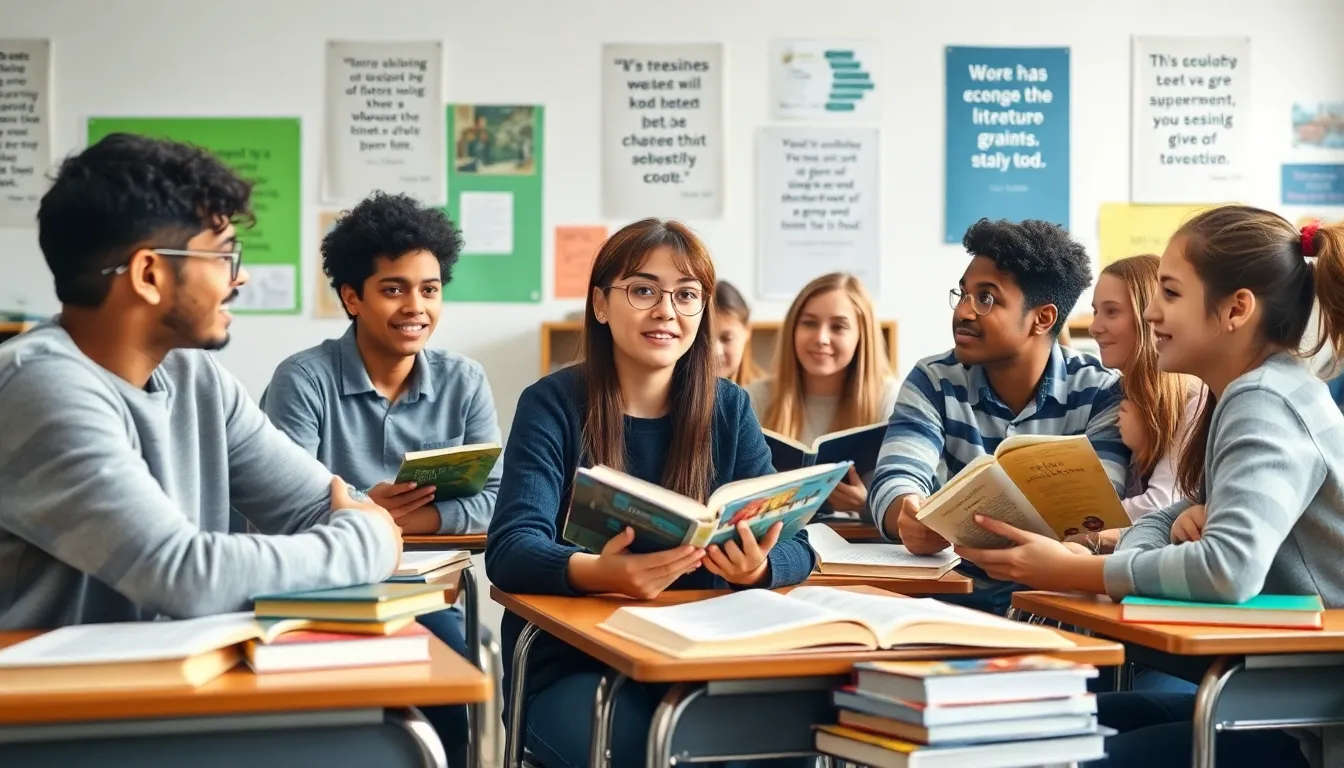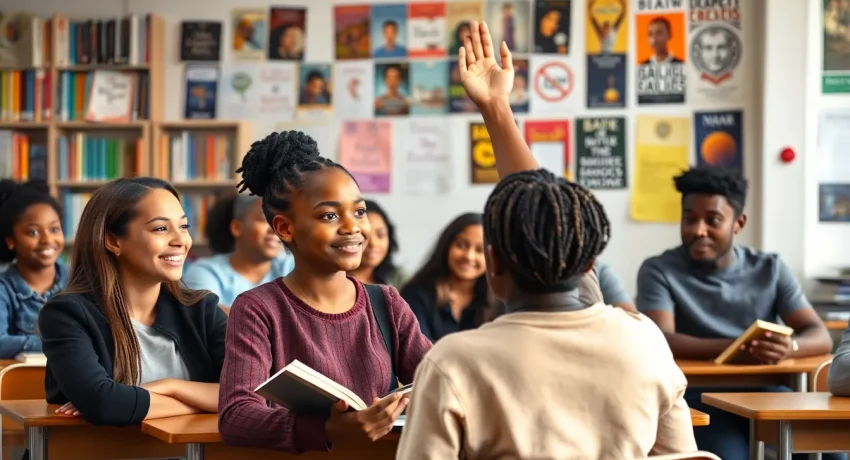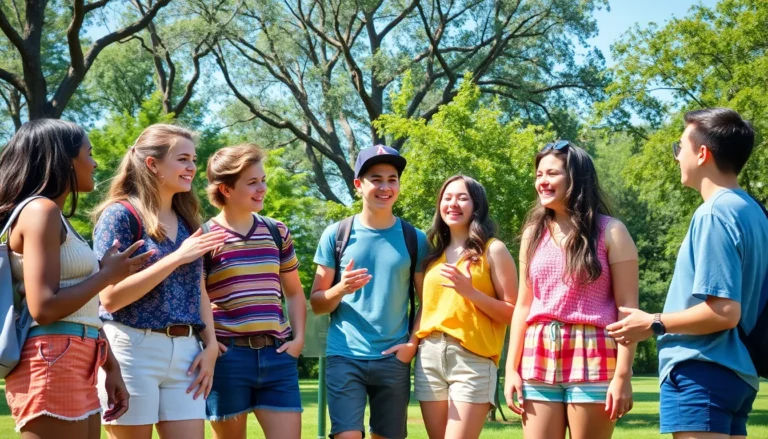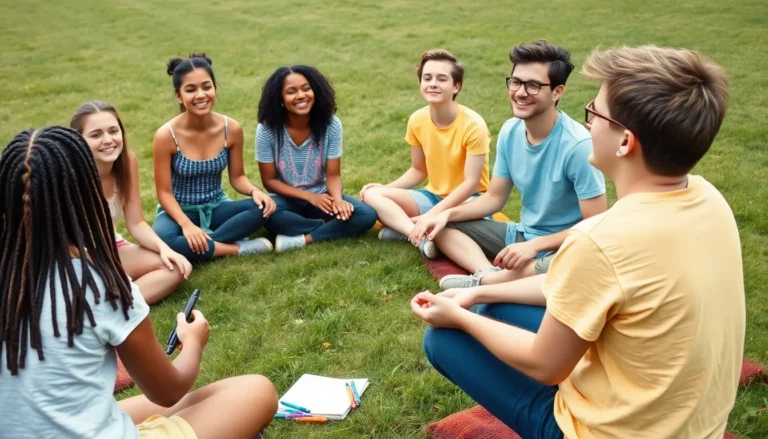High school literature books often get a bad rap, but they’re not just dusty tomes collecting cobwebs in the library. These stories are gateways to different worlds, filled with unforgettable characters and life lessons that stick with students long after the final bell rings. From the angst of teenage rebellion in The Catcher in the Rye to the timeless battles of good versus evil in To Kill a Mockingbird, these books pack a punch.
Imagine diving into the pages of a classic and emerging with a new perspective on life, love, and everything in between. Sure, some may grumble about reading assignments, but who wouldn’t want to trade a few hours of scrolling through social media for a thrilling adventure with Gatsby or a thought-provoking journey with Holden Caulfield? High school literature isn’t just about passing tests; it’s about discovering the power of words and the magic of storytelling.
Table of Contents
ToggleImportance Of High School Literature Books
High school literature books serve as essential tools for personal and academic growth. They encourage students to explore complex themes and navigate diverse experiences.
Development Of Critical Thinking
High school literature elevates critical thinking skills. Students analyze plot structures, character motivations, and thematic elements. Engaging with texts that tackle ethical dilemmas and societal issues sharpens their analytical abilities. Literature provokes questions, prompting students to develop opinions based on evidence. Reading stories with nuanced characters cultivates the capacity to evaluate different perspectives. Assignments focused on interpretation encourage discussions that challenge preconceptions and deepen understanding. Exposure to varied literary styles enhances cognitive agility, helping students connect ideas across subjects.
Fostering Empathy And Understanding
Literature fosters empathy, allowing students to step into others’ shoes. Characters’ struggles and triumphs create emotional connections that resonate deeply. Stories from diverse cultures introduce fresh viewpoints, promoting acceptance and appreciation of differences. Readers often find common ground with characters, helping them confront real-world issues. Understanding varied human experiences through literature encourages compassion and awareness. Discussions about character choices provide insight into moral complexities. This process cultivates a more empathetic student body capable of forging strong interpersonal connections.
Types Of High School Literature Books

High school literature encompasses a variety of genres, reflecting diverse human experiences and insights. Students encounter different styles that challenge their thinking and expand their understanding of the world.
Classic Literature
Classic literature includes timeless works that shape cultural conversations. Titles like “Pride and Prejudice” and “The Great Gatsby” remain relevant due to their exploration of universal themes. Such texts often delve into complex moral issues, illuminating societal norms and human behavior. Engaging with these classics encourages students to think critically about historical context and characters’ motivations. Characters often face dilemmas that resonate with contemporary issues, allowing students to draw parallels between past and present. These works cultivate appreciation for language and literary techniques, enhancing students’ analytical skills.
Contemporary Works
Contemporary works reflect modern societal challenges and youth experiences. Novels such as “The Hate U Give” and “The Perks of Being a Wallflower” address themes like identity, diversity, and social justice. These narratives resonate with students, as they often encapsulate real-life struggles and triumphs. Engaging with contemporary literature fosters relatable discussions about current events and personal growth. Characters in these books often navigate complex relationships and emotions, promoting empathy and self-reflection. This connection helps students develop a deeper understanding of themselves and their peers, fostering a more inclusive learning environment.
Notable High School Literature Books
High school literature includes several notable titles that resonate deeply with students, creating opportunities for growth and discussion.
“To Kill A Mockingbird” By Harper Lee
“To Kill A Mockingbird” explores themes of racial injustice and moral integrity. Set in the 1930s, the narrative follows Scout Finch, a young girl navigating her childhood in a racially divided Southern town. Characters like Atticus Finch instill values of empathy and courage, prompting discussions about ethics and the human experience. This novel encourages students to analyze societal norms and question prejudices. Its rich symbolism and deep character development allow for critical engagement with historical context, pushing students to reflect on their own beliefs.
“The Great Gatsby” By F. Scott Fitzgerald
“The Great Gatsby” delves into the American Dream and the complexities of love and wealth. Set in the vibrant Roaring Twenties, the story centers on Jay Gatsby’s pursuit of elusive ideals. Readers encounter themes of class disparity and disillusionment that are still relevant. Fitzgerald’s prose paints a vivid picture of the era’s extravagance and moral decay. Through characters such as Daisy Buchanan, students explore the impact of choices and societal expectations. This novel cultivates critical thinking about aspirations, identity, and the human condition, making it a staple in high school literature curricula.
Teaching Strategies For High School Literature
High school literature teaching strategies engage students and foster deeper understanding. By utilizing various methods, educators can enhance the learning experience.
Engaging Students Through Discussion
Discussion encourages students to voice opinions and explore different perspectives. Facilitating open dialogues allows for critical thinking about complex themes and character motivations. This strategy helps students connect personally with literary works, making texts more relatable. Asking thought-provoking questions prompts students to analyze characters’ decisions and moral quandaries. Group discussions create a sense of community, where students feel comfortable sharing insights and challenges. A classroom anchored in discussion nurtures empathy as students contemplate diverse human experiences reflected in literature.
Incorporating Multimedia Resources
Multimedia resources enhance literature lessons and expand learning opportunities. Integrating film adaptations helps students visualize narratives and understand characters more vividly. Audio recordings of texts can bring stories to life, enriching comprehension and engagement. Visual aids, such as infographics, offer alternative ways to dissect complex themes and symbols. Utilizing interactive platforms encourages collaboration and invites students to explore different interpretations. Multimedia approaches cater to various learning styles, ensuring all students remain engaged and inspired throughout their literary journey.
High school literature books play a crucial role in shaping students’ understanding of themselves and the world around them. By engaging with diverse narratives, students not only enhance their critical thinking skills but also cultivate empathy and compassion. These texts serve as mirrors reflecting societal issues while encouraging meaningful discussions that challenge preconceived notions.
As students navigate the complexities of life through literature, they develop a richer perspective on human experiences. Embracing these literary journeys can transform reading from a chore into an enriching adventure. Ultimately, high school literature fosters a deeper connection among students, paving the way for a more understanding and inclusive community.




